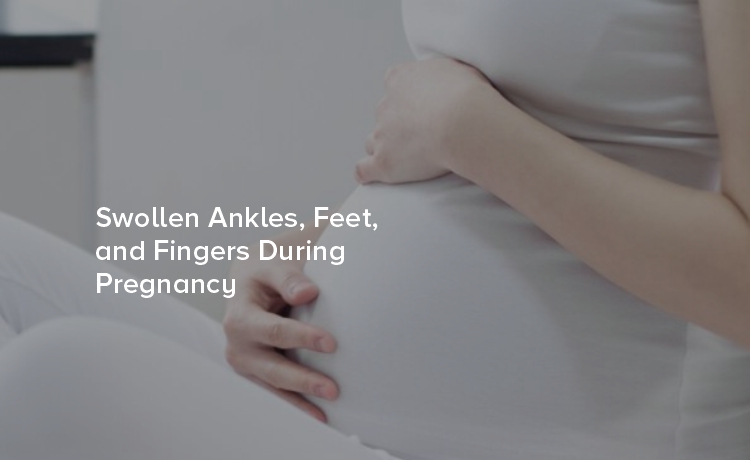
Pregnancy is a miraculous time, filled with expectations, dreams, and ultimately, the arrival of a new life. However, the nine months leading up to that joyful moment are often marked by various physical challenges – some expected, some not so much. One of the more common, and certainly more annoying, pregnancy symptoms is swelling, or edema, in the extremities.
When your rings no longer fit, your shoes pinch, and even the simple act of taking off your socks feels like a Herculean task, you're likely experiencing the joys of pregnancy-related swelling. But why does it happen, and more importantly, how can you best manage it?
Swelling is the result of your body's increased blood volume and its natural tendency to retain more fluids during pregnancy. This, together with the added pressure from your growing uterus on the pelvic veins, contributes to the accumulation of fluid in your ankles, feet, and fingers. The hands and feet contain more bones, muscles, and joints, making them particularly vulnerable to rapid changes in fluids.
Pregnancy-induced edema typically begins around the fifth month and worsens throughout the third trimester. It's most noticeable at the end of the day when fatigue and the effects of gravity are at their peak. However, if swelling is sudden, severe, and also experienced in the face alongside symptoms like headaches, vision changes, and abdominal pain, it could signal a more serious condition, such as preeclampsia. Always consult your healthcare provider if you have sudden swelling that affects one leg more than the other, which could indicate a blood clot.
While some degree of swelling is inevitable, there are steps you can take to minimize its effects and keep it in check.
It might sound counterintuitive, but drinking more water can actually help prevent swelling. When you're well-hydrated, your body is less likely to retain water.
Sitting or standing in the same position for too long can impede circulation and lead to fluid accumulation. Taking regular breaks to walk and elevating your legs when you can helps the blood and lymph fluids circulate more effectively.
Excessive salt in the diet can worsen edema. Aim to reduce your sodium intake by avoiding processed foods and choosing fresh, non-processed options instead.
High heels and tight shoes can restrict blood flow. Opt for comfortable, supportive footwear that accommodates potential swelling.
In addition to prevention, there are several strategies to manage swelling if and when it occurs.
Moderate, regular exercise can help stimulate circulation. Prenatal yoga, swimming, and walking are excellent choices.
Applying cold compresses or submerging your feet in cool water for 15 minutes several times a day can provide relief from the discomfort.
A gentle massage from your partner or a professional can help the fluid in your tissues return to your bloodstream, reducing the swelling.
Support stockings or socks can help prevent blood from pooling in the veins of the legs and can be particularly useful if you must stand for prolonged periods.
When resting, try to keep your legs elevated above the level of your heart if possible, to allow gravity to help return fluids back to your core.
While mild-to-moderate swelling is common and generally harmless, severe edema can sometimes be a sign of an underlying health issue. High blood pressure (pre-eclampsia) can be a serious complication, and swelling in the legs can indicate the presence of a blood clot. If your swelling is sudden, severe, or accompanied by other concerning symptoms, it's crucial to contact your healthcare provider without delay.
Swelling during pregnancy can be perfectly normal, but that doesn't mean you have to suffer through it. By remaining proactive, managing your lifestyle, and recognizing when it's time to seek help, you can minimize the discomfort and ensure a smoother, less swollen road to welcoming your newest family member. Remember, pregnancy is a unique and individual experience. What works for one person may not work for another. Always consult with your healthcare provider to establish the best approach for your specific needs.